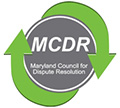The Mediation Process: A Basic Checklist
When entering into a new environment, most of us want to know as much as possible about navigating the terrain. This basic principle applies to all sorts of transactions – from the simple use of mapquest to complicated surgical procedures. This principle equally applies to mediation.
While no one can predict the outcome of any future event (we are not soothsayers!), it is helpful to have a bit of advance knowledge of the patterns that are used in the mediation process. Here is a quick checklist that many mediators use in assisting parties to address their disputes.
- When engaging in an in-person mediation, mediators typically begin by reviewing layout of building, including the location of the restroom. When engaging in an on-line mediation, mediators typically begin by reviewing zoom protocols, including a request for a break.
- The mediator will discuss the role of the mediator as an impartial neutral (not as an attorney or advocate for either party) and will remind participants that mediation is a voluntary and confidential process designed to allow the parties to determine an outcome to resolve their dispute.
- The mediator and parties will confirm their agreement to participate in the mediation process and sign the Agreement to Mediate.
- The mediator will ask each party to explain his or her perspective on the dispute and to explain the desired outcome that each would like to achieve. During this initial presentation, the mediator may note that all persons, including the mediator, shall, to the extent possible, refrain from talking when someone else is speaking and to use respectful language because otherwise, it is difficult to understand the point that is being conveyed.
- The mediator will ensure that each party will get a chance to express his or her point of view.
- Following the initial presentation by the parties, the mediator may ask additional questions of each party. In so doing, the mediator’s purpose is to clarify the perspectives of each party and to potentially reframe the perspective of each party in alternative language that further clarifies the issue.
- By asking questions and refining the facts involved in the dispute, the mediator can assist the parties in identifying the problem involved in the dispute. It is not unusual during mediation to uncover a problem that was not considered previously by the parties.
- The mediator will assist the parties in collaborating to address the problem identified during the mediation and to consider generating various approaches to address the problem.
- The mediator will assist the parties in evaluating alternatives to resolve the problem.
- If necessary, the mediator may speak individually with one of the parties to move the conversation forward productively.
- The mediator will assist the parties in selecting appropriate alternatives to resolve the dispute.
- If the parties achieve an agreement, the mediator will follow up a session by preparing a draft agreement for review by the parties, and if desired, by the parties and their counsel.



